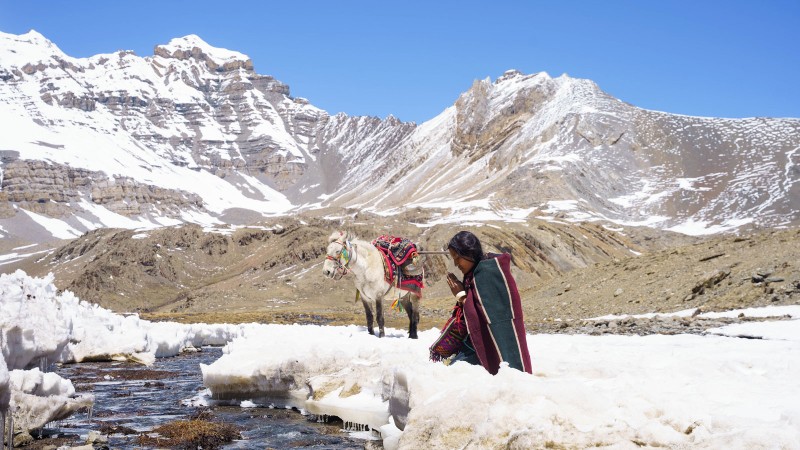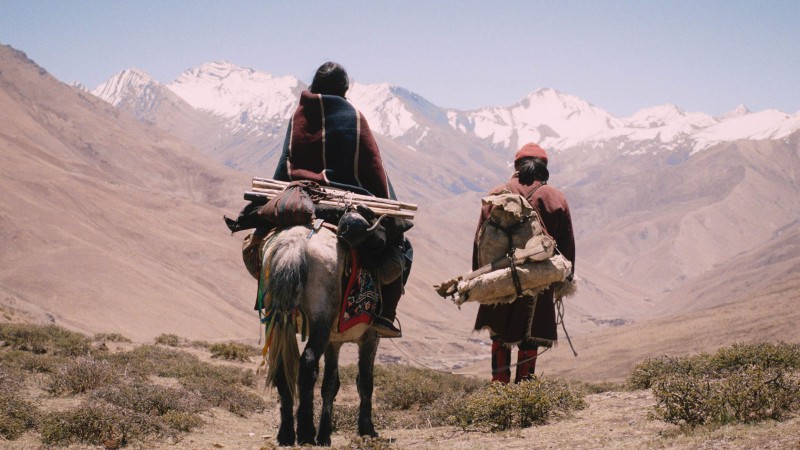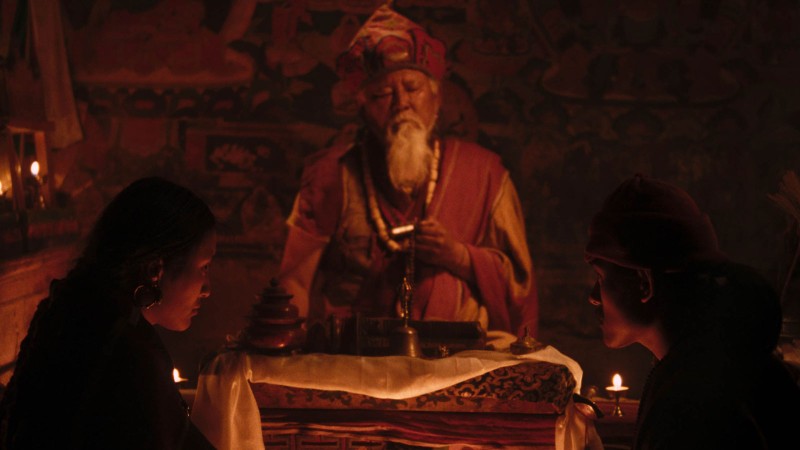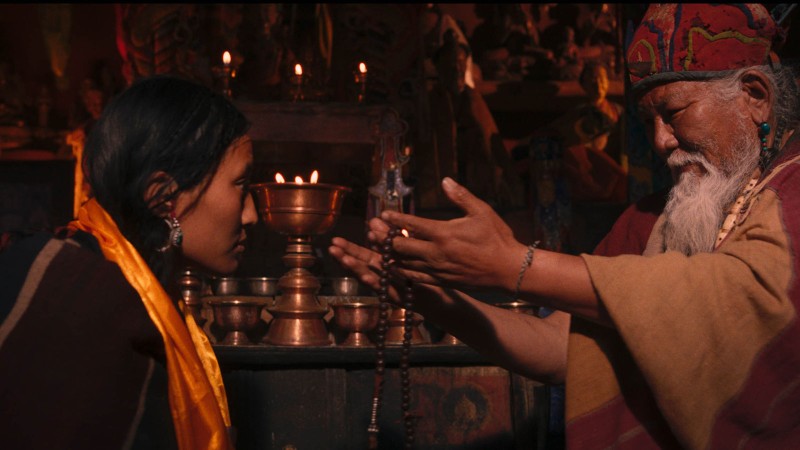Shambhala
The first Nepalese film to screen in competition at the Berlinale follows the physical and spiritual Himalayan journey of a woman on a mission to see truth prevail.
Pema is excited to be marrying her true love Tashi. But in her polyandrous village, this means also wedding Tashi’s brothers Karma, a devoted monk, and Dawa, a schoolboy, with whom Pema has a fraternal and maternal relationship, respectively. When Tashi departs on a months-long trip to Lhasa and Karma returns to the monastery, Pema is left alone with the increasingly unruly Dawa. Seeking guidance from Dawa’s schoolteacher, Pema unwittingly finds herself the subject of rumours that threaten to ruin her family. So she sets off through the unforgiving mountains – reluctantly accompanied by Karma – resolved to find her husband and right these wrongs.
Co-written and directed by Min Bahadur Bham (The Black Hen, MIFF 2016), who reunites with cinematographer Aziz Zhambakiev, this mesmerising, semi-ethnographic study of Nepalese culture and tradition is a stunningly Zen-like drama of epic proportions. Shooting in sweeping widescreen, Zhambakiev makes the most of the exquisite locations and rituals on display, while Thinley Lhamo imbues Pema with a depth of emotional accessibility and self-assurance that feels remarkably vital and real. Visually breathtaking and thematically rich, Shambhala ultimately transcends Pema’s quest for truth-telling to become an odyssey of self-discovery with a determinedly feminist touch.
“Seductive … At once a spiritual odyssey and a more concrete journey of female self-determination, this is a visually magnificent slow-burner filmed high in the Himalayas, with a quietly magnetic central performance.” – Screen Daily



